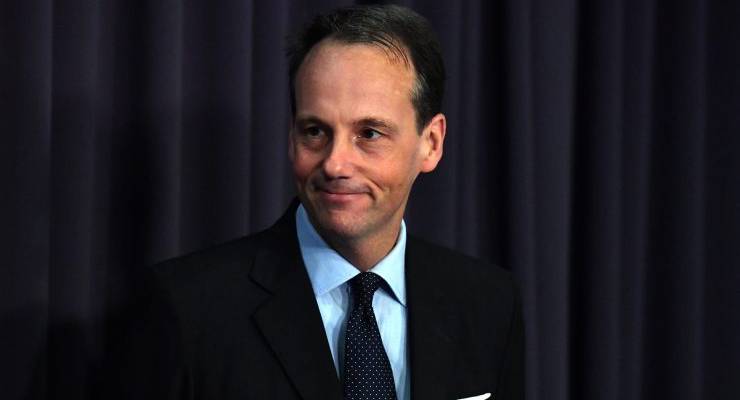
If it wasn’t clear before, it should be now: the Australian Securities and Investments Commission (ASIC) appears to be heading in a very worrying direction under new chairman James Shipton. Primarily, in reverse from the more aggressive stance the regulator belatedly adopted under his predecessor Greg Medcraft after ASIC’s astonishing and systemic regulatory failures in financial regulation were revealed in 2014.
Medcraft was forced to shift ASIC away from its traditional role as polite wrist-slapper for corporate malfeasance because it became clear from the primary example examined by a Senate inquiry into ASIC — that of Commonwealth Financial Planning — what the regulator could not be trusted to regulate. There was a collapse of confidence in ASIC that could only be remedied by a dramatically and visibly more aggressive approach.
Shipton has already indicated that he’s more interested in returning to what might be politely termed the co-regulatory approach of the pre-Senate inquiry era, when the finance industry was expected to police itself as much as ASIC. Yesterday, in a bizarre speech, he doubled down on that theme. For Shipton, it’s all about the big banks regaining consumer trust, and he wanted to talk about “the importance of trustworthiness as a means of rebuilding trust”, an insightful observation about two things normally not seen as related at all.
Trust is all well and good, of course, but Shipton actually sees it as the core part of regulation.
Our regulatory system was not designed as a police state, and this is deliberate. Instead, our system was designed on the premise that participants should also do their part to ensure the system operates appropriately. I think ‘professionalism’ is a good description of the role that is expected of participants.
For Shipton, this kind of self-regulation is a replacement for regulation by the state, which should only act as a back-up, not play an active role. “Our call for greater levels of professionalism is not an abrogation of our important regulatory role,” he said. “We stand ready to use, and enhance, all the regulatory tools available to us – including enforcement and regulatory intervention when necessary.”
“Stand ready” — a phrase that surely means, if Shipton’s preferred self-regulation fails, direct regulation will be implemented? The problem is, we’ve already been through the failure of self-regulation. It was the basis on which ASIC operated until events in 2014 exposed the utter inadequacy of its approach. ASIC “stood ready” through the long years when the Commonwealth Bank’s financial planners were ripping off and defrauding customers. Problem was, that’s all it did — just stand there, despite knowing what was going on within Commonwealth Financial Planning because whistleblowers and ripped-off customers told them. It stood by when the Commonwealth’s insurance arm was ripping off its policy holders. It stood by during numerous other scandals in the years since that are only now coming to light because of the banking royal commission (despite the Turnbull government insisting ASIC had the powers of “a standing royal commission”).
Shipton’s “back to self-regulation” approach, in which ASIC would hang around as an interested observer while hoping that the financial sector decide to rebuild trust in itself (by becoming more trustworthy, apparently) takes us back to bad old days when ASIC acted as a kind of indulgent nanny to the banks, when no amount of scandal and misconduct, no amount of misery inflicted on customers and other businesses, would ever draw anything stronger than an enforceable undertaking, and certainly never be revealed to the wider public. ASIC’s, and the public’s, interests might have been better served by the appointment of a regulator who actually wants to regulate.








They’ll never appoint a regulator who actually wants to regulate, BK, and you can see their point. Intense scrutiny, held to account for every dollar spent or saved- it would be a nightmare. Great ideas would be stillborn. No one would invest. We’ve seen where it leads- look at the other currency issuer.